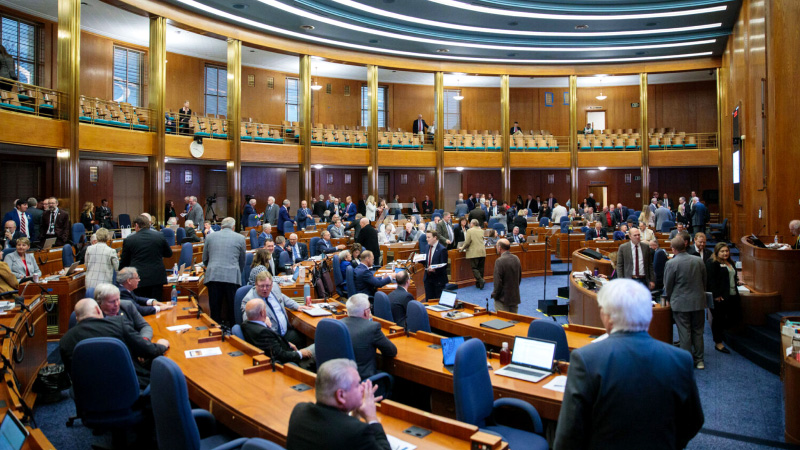- AI-generated political ads must carry a clear disclaimer in capital letters.
- Knowingly spreading false political info can now lead to misdemeanor charges.
- New laws cover digital channels like texts, calls, and social media.
With the signing of House Bill 1167, North Dakota has become one of the first states to mandate clear labeling of AI-generated political content. This law ensures that voters are explicitly informed when artificial intelligence has been used to craft political messages. This helps maintain transparency in an evolving digital landscape.
House Bill 1204 focuses on accountability for misinformation in political discourse. By expanding the definition of political advertising to include modern communication platforms like social media, text messages, and phone calls, it closes a loophole. This loophole had allowed deceptive information to spread unchecked.
Truth and Transparency: North Dakota Reins in AI and Political Misinformation
Governor Kelly Armstrong’s approval of two new bills marks a significant step in modernizing political communication laws. House Bill 1167 specifically addresses the growing use of artificial intelligence in campaign strategies. By requiring disclaimers in capital letters, the law helps voters easily recognize AI-generated content.
AI-generated content can blur the lines between real and synthetic messaging, which poses risks during election cycles. Legislators see this as a proactive move to safeguard public perception. It ensures that digital tools are used responsibly in campaigns. The bill received unanimous support in both legislative chambers, signaling a united front on the issue.
House Bill 1204 takes on the problem of political misinformation. It introduces legal consequences for those who knowingly or recklessly disseminate false or misleading election content. By updating the platforms covered under the law—including digital formats like texts and social media—it reflects the current ways in which people consume information.
The bill’s origin is tied to real-world incidents, including anonymous texts sent during the 2024 primary that falsely claimed a candidate had dropped out. Lawmakers across party lines emphasized the importance of electoral integrity. They also stressed the need to hold bad actors accountable in an increasingly fast-paced media environment.
Together, these bills reflect North Dakota’s strong bipartisan effort to protect democratic integrity. They do this by regulating emerging technologies and misinformation in the digital age.
“Knowingly spreading falsehoods about an opponent undermines the integrity of our elections.” — Sen. Sean Cleary



